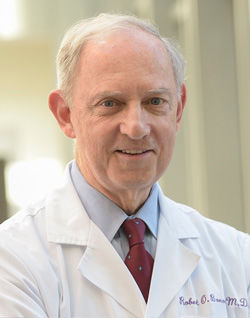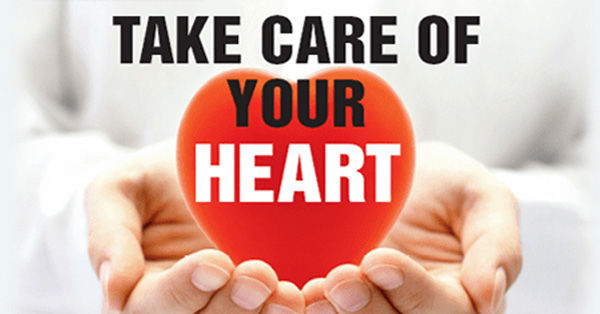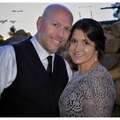Cardiologist Q&A: How Should I Take Care Of My Heart After Surgery?
By Adam Pick on January 11, 2018
Karen asked me a great question about taking care of her heart after valve surgery. Her note read, “Hi Adam – I am now approaching my fourth anniversary of mitral valve repair, tricuspid valve repair, and ASD closure. Are there things patients should be aware of as the years go by? How often should we have things performed, like echocardiograms, dental prophylaxis, blood thinners, and any blood work?”
To help Karen and our community learn more about this very important topic, I met with Dr. Robert Bonow, the former President of the American Heart Association and a Professor of Cardiology at Northwestern Medicine. So you know, Bob could be one of the nicest people I have ever met. Plus, he has helped many patients from our community including Christine Rakesh and Mark Kroto. Here’s the highlights of my interview with Bob.
I hope this helped Karen (and perhaps you) learn more about the ways patients can take care of their hearts after valve surgery. Many thanks to Karen for her question and a special thanks to Dr. Bob Bonow for taking the time share his clinical experience and research with our community!
Keep on tickin!
Adam
P.S. For the hearing impaired members of our community, I have provided a written transcript of this educational video below:
Adam Pick: Hi, everybody. It’s Adam. We are at the Heart Valve Summit in Chicago, Illinois. We’re answering your questions that were submitted across our website, Facebook, and all other places on the internet. I’m thrilled to be here with Dr. Robert Bonow, who is a Professor of Cardiology at Northwestern Medicine. He’s also the program director of the Heart Valve Summit. Bob, thanks so much for being with us today.

Dr. Robert Bonow: Thank you very much, Adam. Great to be here.
Adam Pick: We’re going to be answering a question that came in from Karen. Karen writes, “I am now approaching my fourth anniversary of mitral valve repair, tricuspid valve repair, and ASD closure.” She asks, “Are there things we should be aware of, as the years go by, as patients, and how often should we have things performed, like echocardiograms, dental prophylaxis, blood thinners, and any blood work?” Bob, your thoughts on that.
Dr. Robert Bonow: Great, Karen. These are important questions, and they’re questions that I address with my patients every week, right on the mark. Some of that depends on other things that you know about yourself, Karen, that I don’t know: your age, your other medical issues, and everything else that gets built into you that you discuss with your doctor. Since I’m not your doctor, I don’t know those details. In general, depending upon your age – if you’re otherwise a healthy person, then go for it! If you had a good mitral valve repair, tricuspid valve repair, the ASD has been closed, your heart’s functioning normally. We do this to allow people to lead normal lifestyles. That’s why we also recommend, many times, intervening early to prevent there from being any hard damage.
Assuming your heart is functioning normally at this point – again, I don’t know that. Assuming you’ve had a great repair, at just the right time and your heart’s normal, then I would not hold back at all. I would encourage you to exercise, stay in shape. Remember that you’ve had some valve problems, but you also want to keep your heart healthy for all the other reasons that we want everybody in this country to be healthier; eating well, exercising, watching your weight, watch your salt intake, lots of fruits and vegetables, are things we always recommend.
As far as further testing, again, depending upon your own situation, if you’ve had an excellent repair – most of my patients have had good repairs. I see them in the office and I listen to make sure there’s no new murmur that I can hear on my stethoscope. If their heart sounds normal, and they’re feeling normal, and doing all kinds of normal stuff, it’s easy because I don’t need to do a whole lot of extra tests. It’s different when you’ve had valve replacements. Then, you’ve got to worry about the artificial valve and how long it’s going to last and does it still function normally.
If you’ve had a good repair, by an excellent cardiac surgeon, then that should be long-lasting. As long as nothing else is going on in the way you’re feeling or what the doctor hears or sees with a physical exam, many tines we don’t need to do repeat testing. All those echocardiograms you had done before your surgery is kind of a different ballgame after surgery in most patients.
Adam Pick: Wow. Well, I hope that helped you, Karen. I know it helped me. Bob, thanks for taking the time to share all the great things that you’ve learned over – how long have you been practicing now?
Dr. Robert Bonow: 40 years.
Adam Pick: If anybody can provide some great advice, which you just did, it is this man. Bob, thank you for everything you’ve done for all the patients in our community. We really appreciate it.
Dr. Robert Bonow: Thanks, Adam.

|
Bill says on January 11th, 2018 at 5:17 pm |
|
Interesting video, thanks Adam. I thought MVR patients like myself would need echocardiograms yearly? |
 |
|
BillB says on January 11th, 2018 at 9:11 pm |
|
Dr. Robert Bonow is indeed one of the nicest, knowledgeable and caring physicians ever. I’m am so fortunate to have Dr. Bonow as my cardiologist. It’s been nearly 11 years since Dr. Patrick McCarthy performed my AVR surgery at Northwestern Memorial Hospital. Bonow-McMarthy…the Dream Team! |
 |
|
Debbie Fincher Cross says on January 12th, 2018 at 3:54 pm |
|
I have had my 3 year anniversary of mitral, tricuspid repair & maze procedure. I had the good fortune of having Dr.Bonow as my cardiologist! I can’t thank he and Dr.McCarthy enough for taking such wonderful care of me! |
 |
|
Karen says on January 15th, 2018 at 10:44 am |
|
Thank you Dr Bonow and Adam for addressing my question. I’m happy to report that I had an excellent repair and feel great. I’m forever grateful to my heart team! I appreciate that you took time at the Summit to remind us all to stay heart healthy post repair. And, Adam thank you for the tremendous work you do to support us through our surgery and beyond! |
 |












